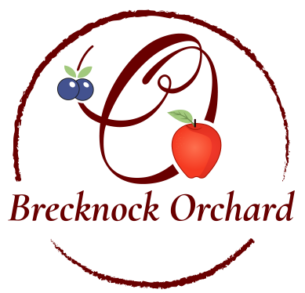Farming Methods
Integrated Pest Management
What is IPM?
IPM is a series of pest management evaluations, decisions, and controls to monitor and control pests in our orchard.
IPM pest control begins with cultural controls. These include soil preparation techniques, planting schedules, crop rotation, and use of resistant varieties and crop sanitation to disrupt the pest environment and to aid in overall pest control.
During the spring mating season for insects, we place over 1000 mating disruption scent emitters (pheromones) in the orchard. This causes the male insect to become confused when trying to find the female insects to mate, which inhibits production of more of the damaging insect. We also monitor for fungi and rot spores that may be present in our fruit and trees. If these exist, then we will take the necessary action to control those fungi. Dry weather is ideal for controlling fungi and pests. On the other hand, wet humid weather is a perfect breeding environment for pests.
Another important step in the IPM program is identifying pests. Not all insects require control; some are beneficial and help control other pests. We work to identify pests accurately, so that appropriate control decisions can be made. Successful monitoring and identification ensure that pesticides are used only when really needed and that the wrong kind of pesticide is never used. Our IPM program uses current information on the life cycles of pests and their interaction with the environment.
The next step is monitoring. We use over 30 insect traps in the orchard to determine which insects, if any, are a threat to the fruit and the trees. If no damaging insects are present, then no method to control them is necessary. We also use computer models and field scouting to help predict the point when pest populations will reach the level that a control action must be taken. These evaluations are based on considerable amounts of research and field experience at the Penn State Fruit Research Center in Biglerville. Our entomologist from Penn State, Greg Krawczyk and his team has been a real asset to us in pest control. We attend meetings and other informational tours often to stay up to date on what is happening in pest research and control. Once a pest begins to cause damage to a crop, we integrate suitable pest management tactics including biological controls (beneficial parasites that feed naturally on the pest), pheromones (as described earlier) natural pesticides (natural elements including copper and sulfur), and trapping. After all biological controls are exhausted, if the pest is still a threat to our crop, then a synthetic pesticide may be considered. When a pesticide is necessary, it is applied by our orchard owner and manager, Daryl Martin who is a PA licensed private applicator. We use rates at or below those recommended by the Penn State College of Ag Sciences. Every pesticide undergoes millions of dollars in testing by universities, the EPA and FDA to ensure that it will not have adverse effects on people and the environment. All pesticides have a “days-to-harvest” interval determined by the EPA. This tells us how many days before harvest we must discontinue the use of a pesticide to ensure that residues will be biodegraded well in advance of the product reaching our customer. The IPM program has greatly enhanced our ability to bring you high quality and full of flavor fruits and vegetables in a safe and efficient manor. We appreciate the opportunity to provide you with fresh fruits and vegetables direct from our farm.
